aNewDomain — You hear this term all the time. But what is the “journalist of the future”? Who gets to be one? And how do you protect them — and journalism — these days?
I only ask because I’m not sure.
Does anybody write real news anymore?
Let’s ask a small-town paper in North Carolina
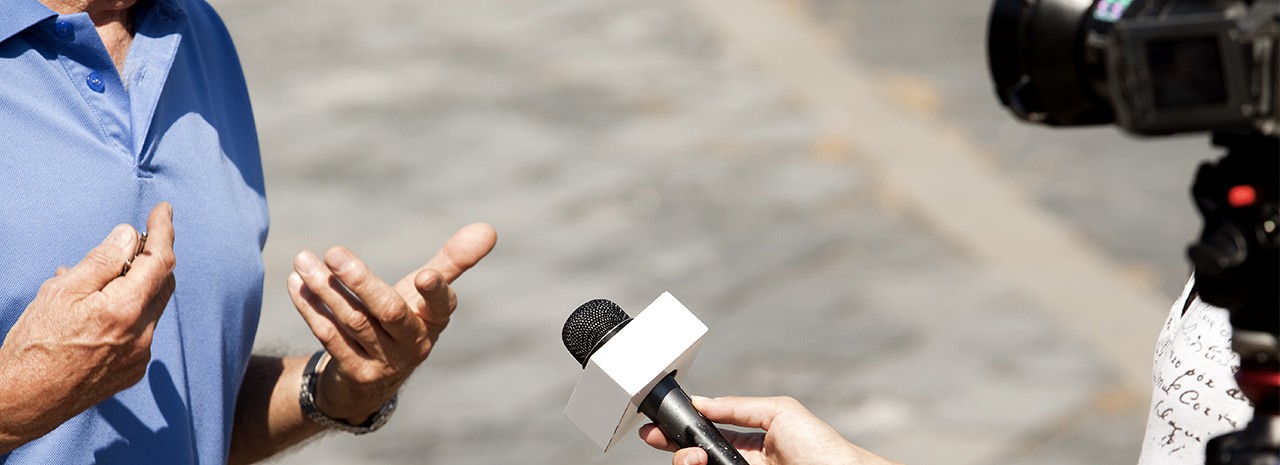 The Hickory Daily Record, a newspaper in Hickory, N.C. (pop. 40,000), thinks it knows. It recently ran an ad looking for a Journalist of the Future.
The Hickory Daily Record, a newspaper in Hickory, N.C. (pop. 40,000), thinks it knows. It recently ran an ad looking for a Journalist of the Future.
An interested New Age Dynamo, according to the 15,000-circulation daily, is someone who can cover breaking news while also digging deeper with enterprise stories (stories a reporter finds all by herself!) and investigative stories and stories of community interest. The successful candidate will be a “self-starter” who works independently and who is comfortable churning out daily copy and breaking news. And he will know his way around social media and other realities of digital journalism.
In short, the paper boldly states:
We want somebody who can do it all.
Are you someone who can do it all?
Wow. Sounds like this paper really wants a seasoned professional. I know a zillion un- or under-employed journalists who would be immensely qualified for this, with decades of experience doing breaking news, enterprise reporting, community features and so on. I’ll call them.
But wait. The ad also says:
The ideal candidate will have experience at a daily newspaper, but candidates with extensive college experience (school newspaper/internships) or reporters looking to make the jump from a smaller community newspaper are encouraged to apply.”
 In case you don’t speak BS, I’ll translate this for you:
In case you don’t speak BS, I’ll translate this for you:
We don’t want any old, moldy, experienced journalists. Only cheap, barely trained, won’t-sass-bosses-or-get-sick journalists — mainly youths — need apply.
Age discrimination in journalism is rampant. It’s illegal and yet it remains so. It’s also insane, this sudden industrywide reliance on inexperience to fill plum jobs.
No wonder people new to this, all the citizen journalists and bloggers and plain old writers, have trouble deciding what distinguishes journalist from essayist from blogger from PR person from ad copy writer from con artist.
Who gets to call himself a journalist?
My colleague Jason Dias wrote a thoughtful essay the other day, wondering whether he’s a journalist. In the essay, this writer and psychologist trained in existential phenomenology, but not in chasing down leads, wondered whether he has the credentials to call himself a journalist.
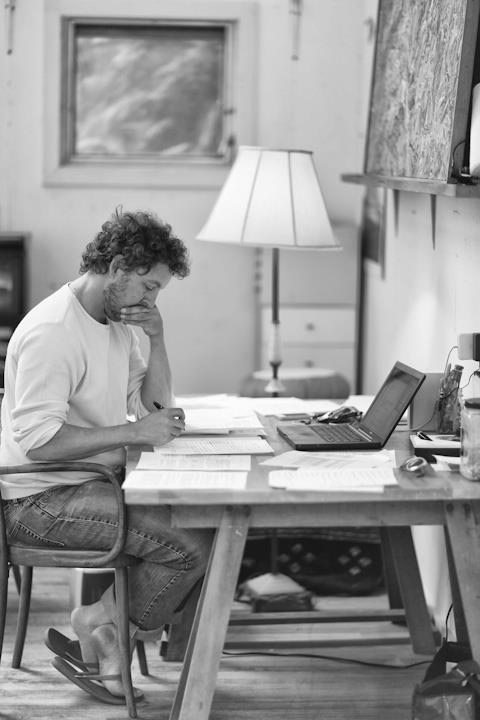 That is, of course, an existential question nobody can answer for him.
That is, of course, an existential question nobody can answer for him.
But I’m not surprised that everyone has to think twice about definitions.
Like everything else in this corrupt capitalists-run-amok society, modern journalism has been co-opted and its essence polluted.
Many even go so far as to say journalism is dead.
Others say that’s not true at all.
It wasn’t always this complicated
When I was growing up back in journalism’s Woodward and Bernstein glory days of the 1970s, the road to becoming a journalist was fully staffed with solid checkpoints.
A budding journalist would write and edit for their high-school newspaper. Then she’d move on to the college paper. Then she’d graduate and intern for a couple news organizations before finding a job in radio — if you didn’t care about pay — or newspapers — if you wanted a calling as much as a small paycheck — or local TV — if you loved getting on the tube, making really good money and not having to do much investigative work of your own.
No longer.
But we “real journalists” let everyone down …
No matter what type of journalism you pursued, most of us journalists agreed on basic ethics and standards. We all generally pledged to uphold: Truthfulness. Accuracy. Objectivity. Impartiality. Fairness. Accountability.
Toss in informing, entertaining and enlightening if you’re fancy.
We also pledged to keep noble journalistic ideals like: Comfort the Afflicted and Afflict the Comfortable. Tell the Truth. Be a Voice for the Voiceless. Take no prisoners. Be transparent. Be fair.
But the problem was, we Journalists of the Past let everyone down. Especially ourselves.
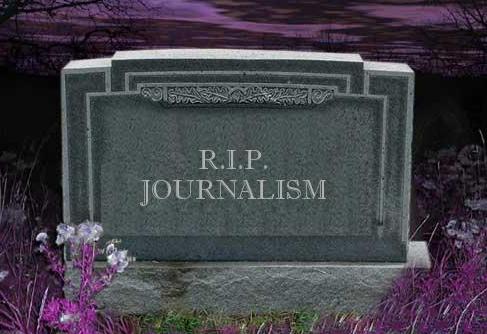 The Newspaper Death Watch of the New Millennium has turned grown journalists into cowering wusses. Suddenly we don’t feel comfortable picking up a phone, asking hard questions, or any questions. And woe unto any journalist who writes anything that might piss off some company or government entity.
The Newspaper Death Watch of the New Millennium has turned grown journalists into cowering wusses. Suddenly we don’t feel comfortable picking up a phone, asking hard questions, or any questions. And woe unto any journalist who writes anything that might piss off some company or government entity.
The fears aren’t insubstantial. Even journalists who do their job exceptionally well can be attacked and even labeled “terrorists.”
But fear of the future — a dangerous thing for any group of people to live under — has paralyzed journalists.
Too afraid, wary of appearing bitter, or biting their tongues because they’re desperate to find new careers, too many journalists have looked the other way while newsrooms toppled and journalism suffered. They instead concentrated on building their personal “brand,” trying to outdo each other with manipulative and oversharey personal essays, loathe to criticize what should be criticized for fear of looking foolish, angry, or just emotional.
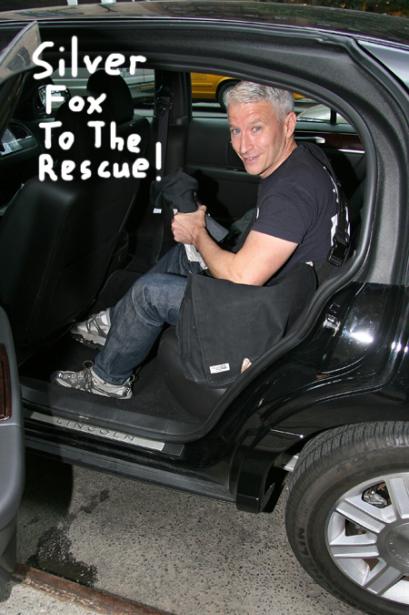 Journalists aren’t supposed to take things personally. Apparently even their own obsolescence.
Journalists aren’t supposed to take things personally. Apparently even their own obsolescence.
Some truly imaginative truth-tellers even call this The Golden Age of Journalism. (I think that’s a little like calling the Bosnian War a Golden Age of Ethnic Cleansing. There’s looking forward and then there’s myopia.)
Meanwhile, journalism has been spitting out its devoted adherents and replacing them with inexperienced young “bloggers” who wouldn’t know an oxford comma from a pica pole. Some of these young cubs have no clue about journalistic tenets, concepts, ideals, ethics, any of it. But with no elders to look up to, they have been christened the rightful heirs to the “Newsroom of the Future.” That’s the workplace for the Journalist of the Future, btw.
And executives who ran newspapers — those supposed bastions of truth-telling — wouldn’t even admit when they were laying people off. You couldn’t trust them, either.
The tsunami that bore down on journalism was just too big and too strong.
Mistreating real journalists for fun and pleasure
The mistreatment of journalists has caused some bright newcomers to swear off the profession. And it may never recover. Even President Obama has been saying so. I suppose with the death of journalism as a profession, a successful politician (and President) is as much of an expert as anybody.
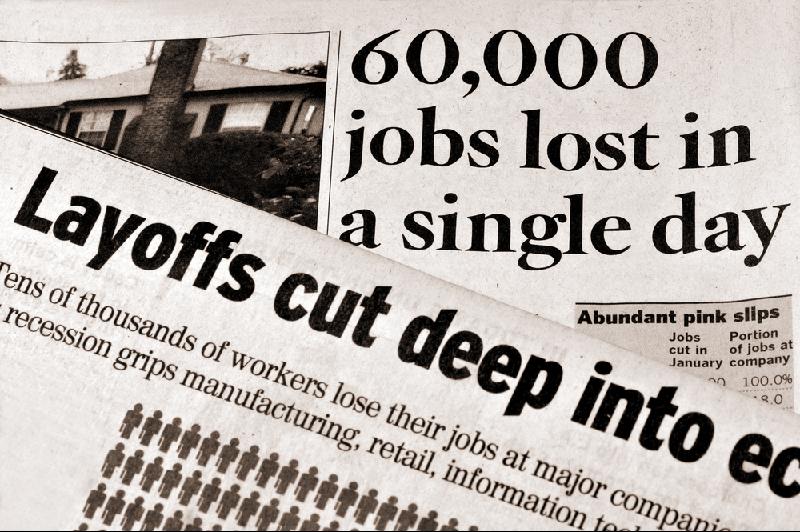 American journalism always lacked self-awareness.
American journalism always lacked self-awareness.
But this has reached absurd lengths as once-respected journalist organizations have partnered with unscrupulous, ageist media companies like Gannett to train young workers to replace older journalists.
It’s hard to think of a mainstream American news agency that isn’t owned, linked or in bed with a commercial entity.
Ever heard of Poynter? This is a chichi Florida journalism training compound founded by a rich guy to promote “the highest standards of journalistic values.” It’s reprehensible, really, that Poynter would be such a major participant in the very thing it should be battling.
As journalist Dan Mitchell astutely notes under Jim Romenesko’s media column:
Poynter’s long experience in journalism education is…in purveying pointless claptrap…overloading people with empty buzzwords and marketing speak, and loads of rubrics and heuristics and whatnot….Given that our basic mission is (or should be) telling the plain truth in plain language, this actually seems worse than unhelpful. But if you want to be a ‘digital content strategist,’ maybe it’s great stuff. It doesn’t have much to do with journalism, though.”
 In the name of “innovation,” talent and experience have been purged from newsrooms across the land. And they’ve been replaced with ineptitude and error.
In the name of “innovation,” talent and experience have been purged from newsrooms across the land. And they’ve been replaced with ineptitude and error.
I suppose we should just be grateful we haven’t been locked in cages like the Al Jazeera journalists in Egypt?
Not to belittle the plight of journalists worldwide who face imprisonment, torture and death. But could you imagine Anderson Cooper being willing to risk sitting in a cage over the right to inform people? So why is he considered a “star” of American journalism?
Why was Brian Williams ever a role model?
Shouldn’t we be expecting more from our star journalists than to lie to us for decades, promote their own petty and entitled careers and obsessions, fill their pockets with wealth, or cross lines which stretch the credibility of the entire profession?
Newsflash: Journalists aren’t there to enrich themselves. A good journalist, an honorable one, is there for everyone but themselves. Having any sort of vested interest damages an essential thing called objectivity.
Sidebar: Can I even call journalism a “profession” these days? Some say yes, some say no — talk amongst yourselves.
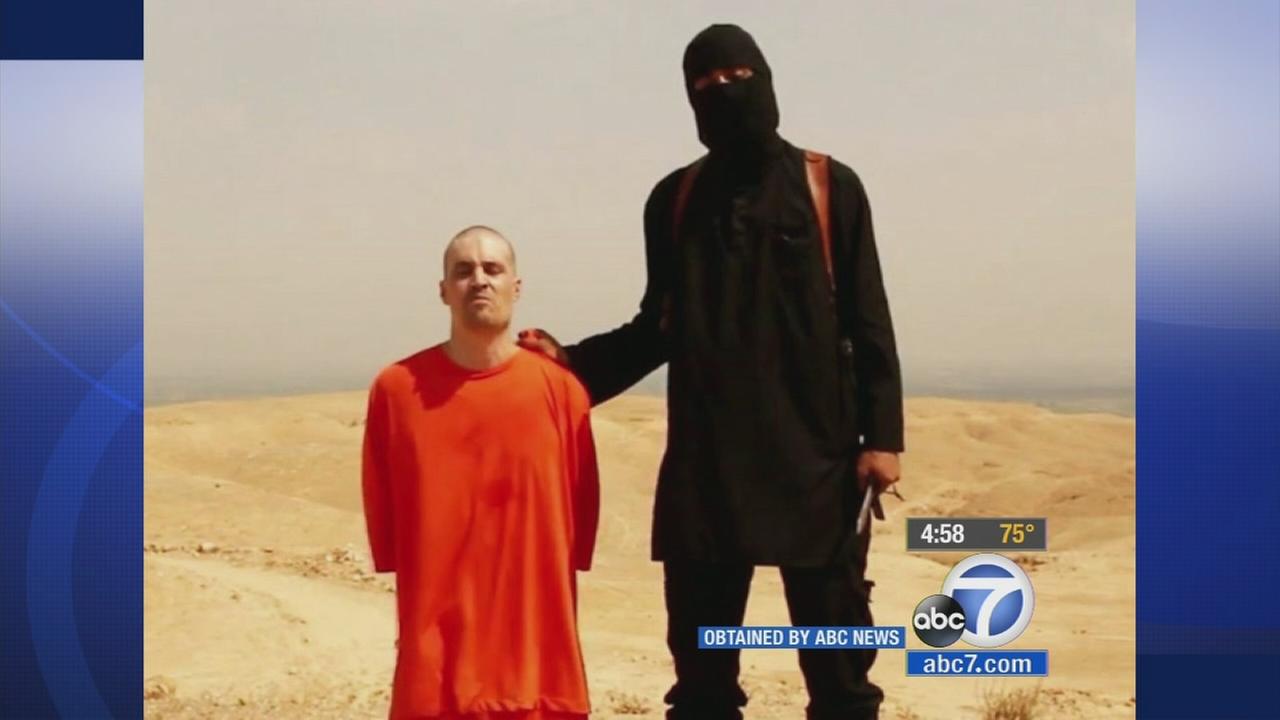 Being a journalist is not for sissies. We’re all grateful to our fallen or imperiled colleagues. Giving your life in the service of journalism is one of the noblest things a human being can do. Everyone who supports free speech and enjoys free sharing of information owes a debt of gratitude to the 1,138 journalists killed around the globe since 1992, according to the Committee to Protect Journalists.
Being a journalist is not for sissies. We’re all grateful to our fallen or imperiled colleagues. Giving your life in the service of journalism is one of the noblest things a human being can do. Everyone who supports free speech and enjoys free sharing of information owes a debt of gratitude to the 1,138 journalists killed around the globe since 1992, according to the Committee to Protect Journalists.
At the same time, the budding journalists of the future are following tweets instead of leads and creating listicles and charticles for clicks. None of this really bolsters the First Amendment or the higher principles journalists give their lives for.
How and when did journalism fall so far?
It’s too easy to blame the Internet for journalism’s fall
For years the decimation of newspapers has been blamed on the Internet. Experts have accused papers of not seeing online coming.
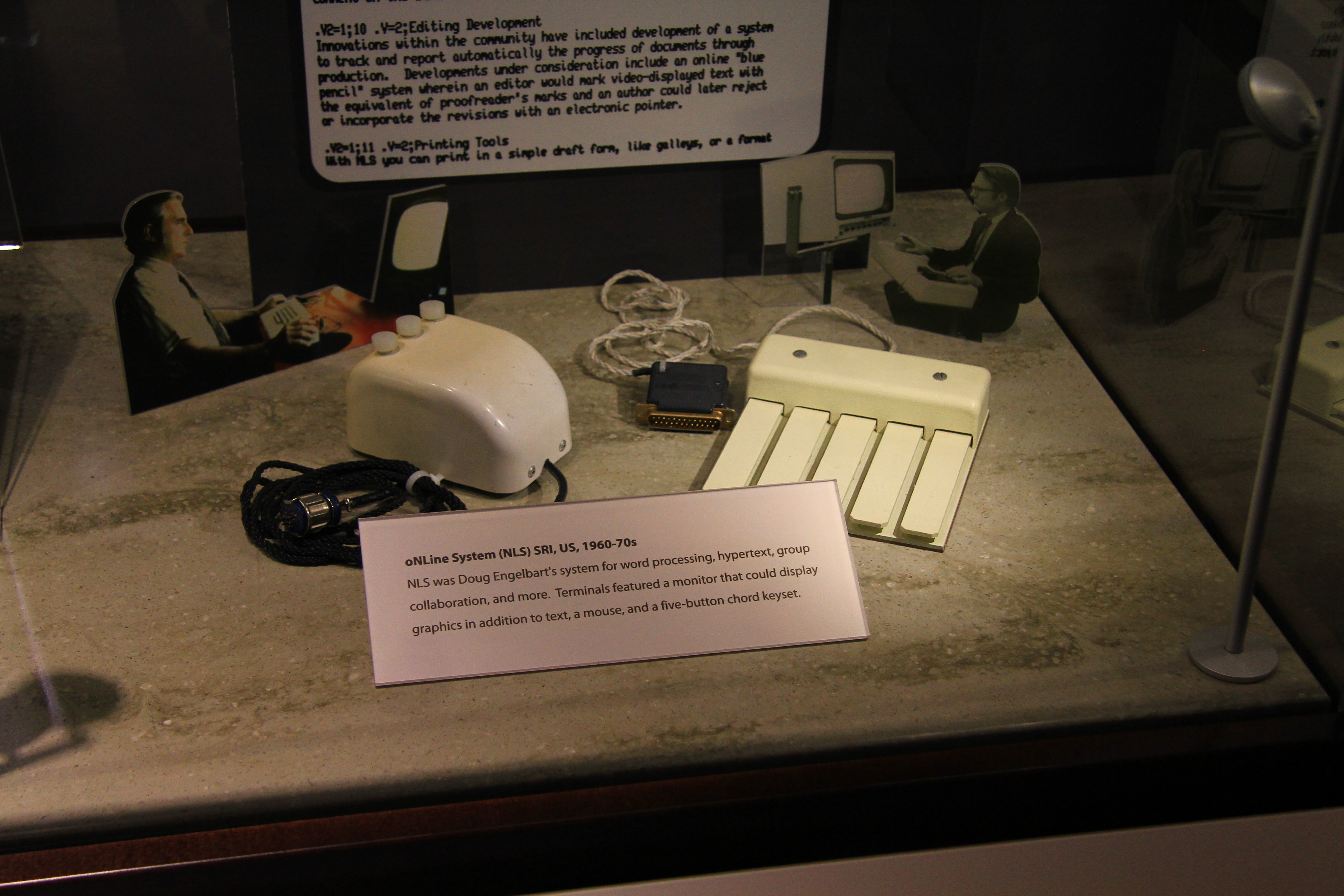 Yet media conglomerates invested millions in partnership with television and cable execs in the earliest days of the online media business.
Yet media conglomerates invested millions in partnership with television and cable execs in the earliest days of the online media business.
They tried to harness this new technology.
They just never did.
Part of that’s OK. Newspapers were never diverse enough to truly serve all readers. They were also hotbeds of sexism, but that’s another story.
It’s true that the best of American journalism had a noble outing in the 1900s with the Muckrakers, who were crusading against corporate and political corruption. Newspapers became a model for what journalism should be. But as they grew richer and became more corporate, anything that got in the way of the bottom line became expendable. That thinking spread like a virus, until newspapers, too, were rotten to the core.
Modern newspapers abandoned public service to print money a long time ago. Setting unrealistic quotas for shareholder profits, papers manufactured their demise by promising ever-climbing profits, year after year.
And as every toddler knows, what goes up, most come down.
 Now the straggling players left in the newspaper business are being tortured like slow-boiling lobsters, screaming in thin, whistly voices. If they managed to hang on while wave after wave of colleagues were laid off, they only lived to see their job responsibilities multiply to include photography, multiple beats, video and more. All the while, they watched their health, dental, vacation, stock and retirement benefits disappear.
Now the straggling players left in the newspaper business are being tortured like slow-boiling lobsters, screaming in thin, whistly voices. If they managed to hang on while wave after wave of colleagues were laid off, they only lived to see their job responsibilities multiply to include photography, multiple beats, video and more. All the while, they watched their health, dental, vacation, stock and retirement benefits disappear.
Their news coverage reflects this. It’s now often shallow, misleading, utterly wrong on so many levels, or just nonexistent.
As this headline sums up (well done, whoever’s job it was to write it): Depressed Journalists Are Depressing The Nation.
So what does it mean to be a journalist these days?
Want the deal? Spin the wheel
This cute Media Helping Media site has some ideas.
It goes into great detail about 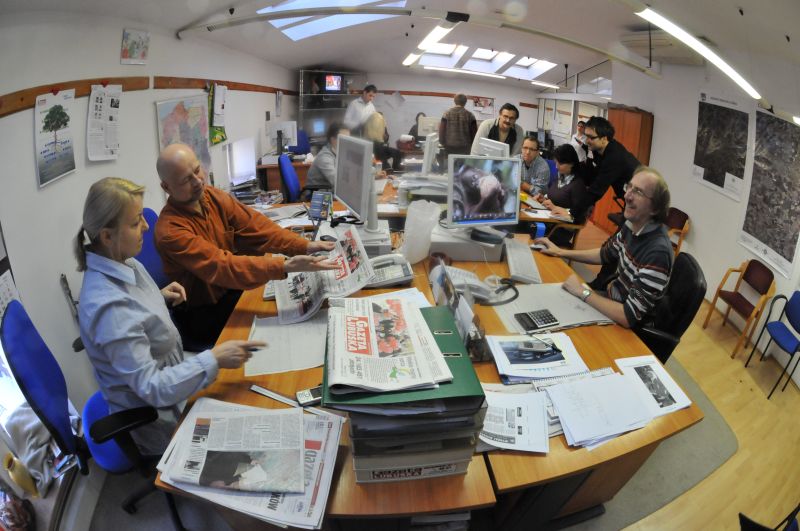 all the different sorts of Journalist Careers you can choose from.:
all the different sorts of Journalist Careers you can choose from.:
Reporters
Sub-editors
Photojournalists
The editor
The news editor
Feature writers
Specialist writers
‘There are many other jobs which can be done by journalists. It is a career with many opportunities…
Oh lol. At this point I’m just laughing too hard to keep reading.
Yeah, there are a ton of opportunities these days to cobble together five writing jobs into one barely subsistence-level income to raise yourself and hopefully a loved one or two.
Forget about having benefits, job security or even a hope for the future, though.
Or all those colleagues at work. Ha.
Even Lois Lane now does the work of 10 reporters.
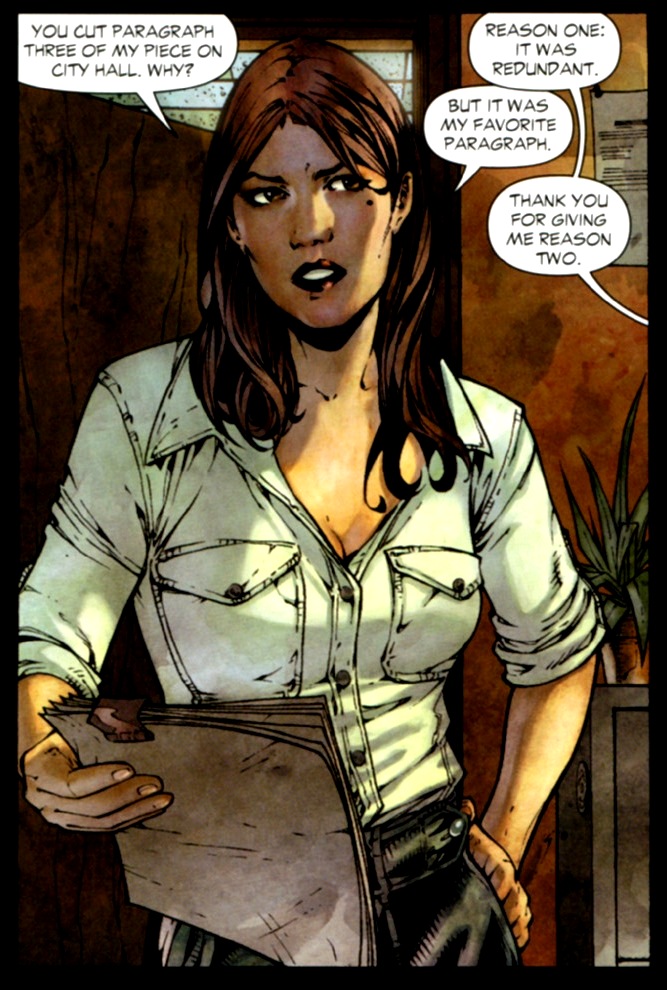 Yes, one of the most iconic reporters of all time, Superman’s girlfriend, has to practically don a cape and fly herself at The Daily Planet these days.
Yes, one of the most iconic reporters of all time, Superman’s girlfriend, has to practically don a cape and fly herself at The Daily Planet these days.
She is now the reporter, copy editor, photographer, videographer and even the exhausted worker who weeps about how she needs a raise. She’s also the evil editor who orders herself back to work or fires herself (again).
Her onetime partner in storytelling, photographer Jimmy Olsen, got laid off along with the entire photo department. He now works days as a barista at Starbucks and nights “building his brand” writing bad essays for UrbanBaby.
Clark Kent started a blog.
Meanwhile, The Daily Planet Of The Future doesn’t want to invest in Lois’s career or finance her reporting or enhance her professional development. It doesn’t care about deep stories or ethical coverage or the freedom of the press.
The Planet now craves clicks. “Pageview-driven” journalism.
The only goal is to “monetize” so Perry White can retire to the Caymans.
Nothing modern is built to last, especially new media companies. They don’t want to stick around.
That’s a sign of failure: not getting bought, not cashing out.
It is of course true that modern American journalism has never been totally sincere or noble.
But people aren’t institutions.
Perhaps the only way to save journalism — real journalism — is to practice it as individuals.
Maybe we were made for these times, all of us individual writers and bloggers and blogger/writers/editors/photographers/videographers who are around right now.
That’s what Dr. Clarissa Pinkola Estés says. She is a Jungian analyst, poet, writer, storyteller, author and healer of the human spirit. She writes:
Ours is not the task of fixing the entire world all at once, but of stretching out to mend the part of the world that is within our reach. Any small, calm thing that one soul can do to help another soul, to assist some portion of this poor suffering world, will help immensely. It is not given to us to know which acts or by whom, will cause the critical mass to tip toward an enduring good.
What is needed for dramatic change is an accumulation of acts, adding, adding to, adding more, continuing. We know that it does not take everyone on Earth to bring justice and peace, but only a small, determined group who will not give up during the first, second, or hundredth gale.”
That’s a journalist.
Just watch any TV news report during a hurricane to see countless examples of brave reporters (and Geraldo Rivera and Jim Cantore) who will not give up during the hundredth gale.
I’m sorry, I need to detour and post this. It’s just too good. Here’s a reporter being actually blown away by Hurricane Ike.
Courtesy 800 Monkeys via YouTube
The Journalist of the Future is blown away, gets back up
The above young reporter has the right idea. Rolling with the gale-force winds of journalism is an imperative for the Journalist of the Future.
Will we be able to do it?
It’s not easy.
But committing to journalism — to a force for good beyond your own selfish career and clicks and brand — feels good. It feels good personally and it feels good to give to the world, too.
It’s risky. Real journalism is rarely safe. Journalists, even freelancers, even ones not covering war, can face libel suits or other litigation, intimidation and harassment from sources or subjects, subpoenas from judges and lawyers, or expensive records requests.
Even if you manage to print something long and in-depth, there’s also the distinct possibility readers would much rather watch a cat video like this one about Maru, a cat who never gives up.
Video of Maru via mugomugo on YouTube
What a great cat. That Maru is just amazing. We should all watch that video again.
What was I writing about?
For aNewDomain, I’m Nancy Imperiale.
Image credits: Allen Salkin at His Writing Desk, 2012 by Jonathan Bloom via Wikimedia Commons; Journalist giving interview via cfi.fr; CUNY Graduate School of Journalism catalog; On Line System By Michael Hicks from Saint Paul via Wikimedia Commons; Lois Lane via DC Comics; U.S. Journalist James Foley Beheaded By ISIS Terrorist from ABC-7 Los Angeles; Cover of Rolling Stone UVA Rape Story courtesy MediaMatters.org; Anderson Cooper To Replace Oprah courtesy PerezHilton.com.. All images, All Rights Reserved.













quote “And committing to journalism — to a force for good beyond your own selfish career and clicks and brand — feels good. It feels good personally and it feels good to give to the world, too.”
Nice read
-RAP, II
Thanks, Anthony! (now I feel bad that I didn’t give Gina an exclamation point. I’m going to have to edit that.)
Very nice read, Nancy.
Thanks, Gina.